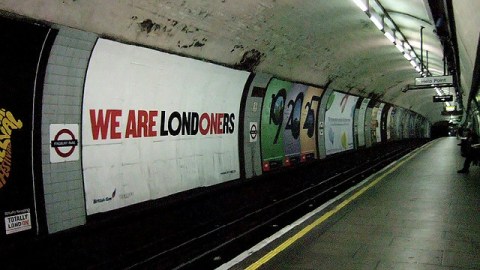Filthy, Hopeful, Brutal, Beautiful London

What’s the Big Idea?
If you had to explain your hometown to someone who’d never been there, where would you begin? With adjectives, most likely. I live in New York City, which is grubby, tough-minded, glitzy, sexy, and verdant (yep, that, too – parts of Prospect Park, Brooklyn feel almost primordial. People forage there for field garlic and Hen-of-the-Woods mushrooms).
Well, it’s a start. But the real challenge in expressing your hometown to an outsider is complicating whatever ideas they’ve got about the place from tv, literature, or the news. New Orleans goes deeper than Jazz, gumbo, and FEMA trailers, as the HBO series Tremé made plain. Tokyo, for its residents, is many things besides a Matrix-like, vertical, neon hypercity where they shove you into subway cars like sardines.
While weather and and architecture matter, the soul of a city is its people. So, to reveal London from the inside out, Craig Taylor started with verbs. What was it possible to do to, with, for, and in London, he wondered? Feeding London. Demolishing London. Squatting London. The list went on and on. In the end, he had a rough guide to the professions and ways of life of the people he needed to get out there and meet. Taylor interviewed architects, cabbies, city planners, a dominatrix, and hundreds of others whose personal experiences of London add up to his remarkable book Londoners: The Days and Nights of London Now–As Told by Those Who Love It, Hate It, Live It, Left It, and Long for It.
What’s the Significance?
Sure, themes emerge. London is magnetic – drawing people irresistibly towards itself from all over the world. London is tough – everyone is struggling to get and hold onto a piece of it. London’s cultural identity is in flux now that sun has definitively set on the Empire. But the real power of Taylor’s book is the way each narrator draws you into the intimate, idiosyncratic version of the city that only he or she lives.
It’s a humbling reminder that, for all the restless energy we put into categorizing, labelling, and compartmentalizing the world, the only way to understand people and places as they really are is to shut up and listen.
Follow Jason Gots (@jgots) on Twitter





